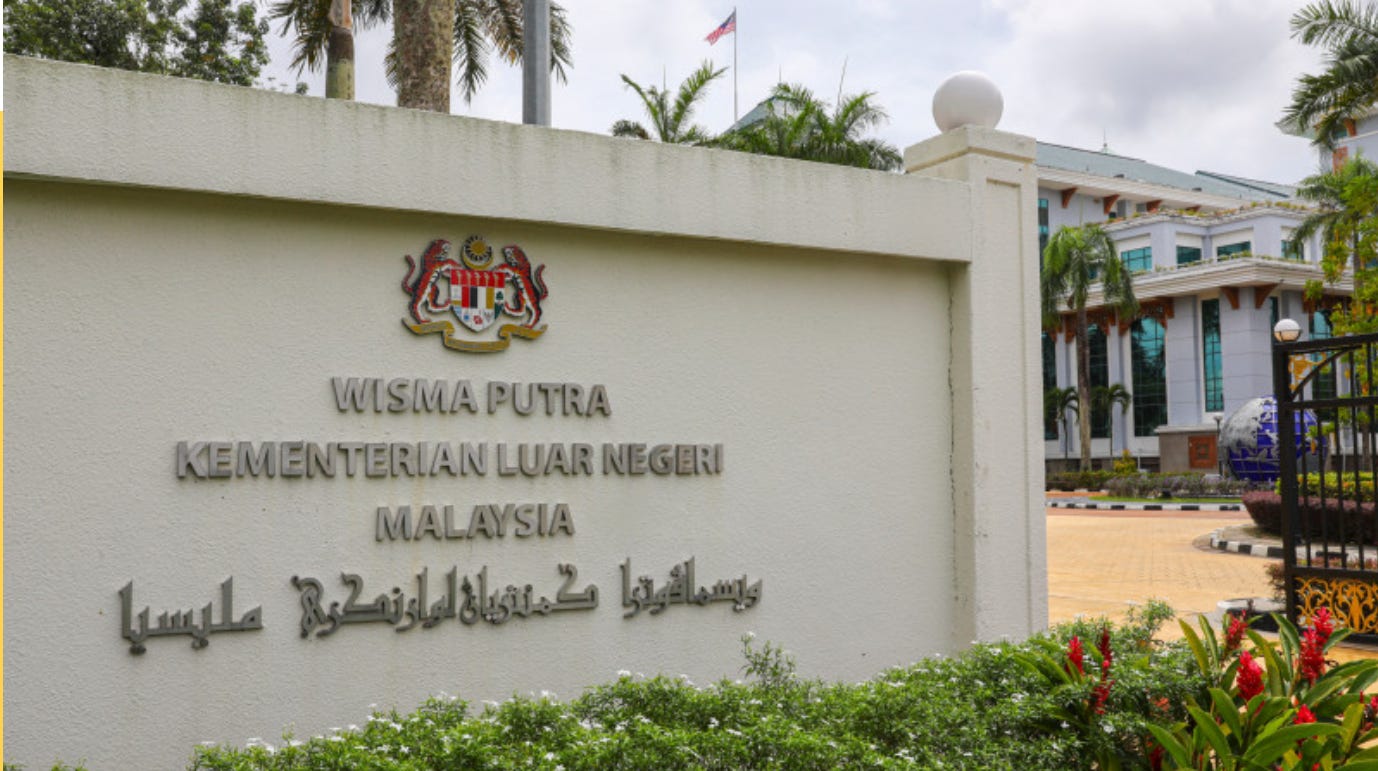
Murray Hunter
Recalibrating Alignments: Bangladesh, the D-8, and Malaysia’s Foreign Policy Crossroads
Abdul Ghafoor
Aug 11, 2025

In the rapidly shifting landscape of Asian diplomacy, Bangladesh’s reported interest in joining ASEAN is more than a routine regional overture — it could signal the stirrings of a deeper realignment among Muslim-majority nations, bringing with it quiet but significant implications for Malaysia’s foreign policy stance. At the heart of this development lies not just the question of regional cooperation, but the possibility of a new economic and ideological axis taking root — one that converges through the D-8 grouping and revives dormant aspirations for a new South-South solidarity.
For Bangladesh, the ASEAN card is a strategic move. Frustrated by the paralysis of SAARC, and wary of being boxed in by subcontinental geopolitics, Dhaka sees ASEAN as a gateway to dynamic markets, integrated supply chains, and broader Indo-Pacific visibility. As the Bay of Bengal grows in strategic relevance, Bangladesh seeks to engage more directly with countries like Indonesia, Malaysia, and Thailand — not merely as neighbours, but as emerging power nodes. While full ASEAN membership remains a distant goal due to the bloc’s consensus model and institutional conservatism, observer status or economic partnership frameworks are not far-fetched ambitions.
From South-South Cooperation to Strategic Realignment
But this move is not in isolation. Its backdrop is the quiet reactivation of the D-8 — a grouping of developing Muslim nations comprising Bangladesh, Egypt, Indonesia, Iran, Malaysia, Nigeria, Pakistan, and Turkey. Once considered dormant, the D-8 is showing signs of life as member states look to insulate themselves from great power rivalries and build an autonomous, non-aligned bloc of southern economies. The original vision, inspired by former Malaysian Prime Minister Dr. Mahathir Mohamad and Turkey’s Necmettin Erbakan, was to challenge the structural biases of the Western-led global order and provide Muslim nations with an alternative model of development — one rooted in self-reliance, trade cooperation, and Islamic values.
In this context, the suggestion that government-linked think tanks in Malaysia — particularly the Malaysian Institute of Economic Research (MIER) — are engaging Bangladesh on matters of trade and regional cooperation cannot be ignored. MIER, under the intellectual leadership of figures like Tan Sri Sulaiman Mahbob, has historically espoused development ideas shaped by Mahathirian pragmatism, Asian values, and a preference for multilateral South-South engagement. If the Institute is playing a role in encouraging Bangladesh’s deeper ties with ASEAN or the D-8 revival, it is worth asking whether Malaysia’s foreign policy is still being guided by neutrality — or whether it is quietly tilting toward an alternative Muslim multilateralism.
This raises critical questions for Malaysia’s position in the Islamic world. Traditionally, Malaysia has pursued a moderate and balanced Islamic diplomacy — acting as a bridge between the Gulf, South Asia, and Southeast Asia. But a closer embrace of Bangladesh, Pakistan, and Indonesia under the D-8 banner, particularly if it sidelines the Gulf monarchies, could be interpreted as Malaysia’s subtle pivot away from the Saudi-led order. That, in turn, has ramifications.
First, Malaysia’s special arrangements with Saudi Arabia — particularly on the sensitive matters of Hajj and Umrah quotas — could come under pressure. Riyadh, attuned to symbolism and political signaling, may interpret any regional coalition-building that excludes or challenges its leadership as a form of ideological competition. This is especially true if the D-8 expands its agenda beyond economics and into areas like humanitarian aid, Islamic governance, or global Muslim leadership.
Second, Saudi Arabia and the United Arab Emirates have become increasingly important economic partners for Malaysia. Their sovereign wealth funds have been active in Malaysia’s property, energy, and infrastructure sectors. Any perception of drift toward alternative Islamic axes — particularly those aligned with Turkey, Qatar, or Iran — could jeopardise these investment flows.
Third, Malaysia risks being drawn into a competition it did not sign up for — a contest over who speaks for the Muslim world. Today, there are at least four competing visions: the conservative status quo led by Saudi Arabia and Egypt; the reformist but assertive camp of Turkey, Pakistan, and Qatar; the revolutionary path of Iran; and a new, pragmatic South-South economic bloc comprising countries like Malaysia, Indonesia, and Bangladesh. If Malaysia becomes too closely identified with any single vision — especially one perceived as anti-Western or radical — it may find its broader global partnerships strained.
Neutrality Under Scrutiny: Malaysia’s Muslim World Balancing Act
The challenge, then, is one of balance. Malaysia must ask itself: is it pursuing economic diplomacy, or ideological leadership? Are its think tanks driving foreign policy, or merely exploring ideas? And can it navigate the emerging multipolarity of the Muslim world without compromising its core principles of moderation, neutrality, and mutual respect?
In diplomacy, perception is often policy. If Malaysia is perceived as aligning with an emerging alternative bloc of Muslim economies, led by regional heavyweights and shaped by Mahathirian intellectual legacies, then it must be ready to manage the consequences — both in Riyadh and beyond.
The time has come for quiet introspection. Malaysia must reaffirm that its leadership role in the Muslim world is not about usurpation or competition, but about building credible, inclusive, and constructive partnerships. The world is watching, and the choices made today will shape Malaysia’s stature for decades to come.
————————————————-
Abdul Ghafoor is an international affairs commentator
***
I've written on this before.
Whatever, whichever, whenever, M'sia must NOT propose for Bangladesh to join ASEAN. With its visa-free travel amongst citizens of ASEAN members, Malaysia will face an influx of some 90 million Bangla within a short spell, and will also have difficulty making them go home.
Its a huge stretch of the bow to consider Bangla as South East Asia.
ReplyDelete